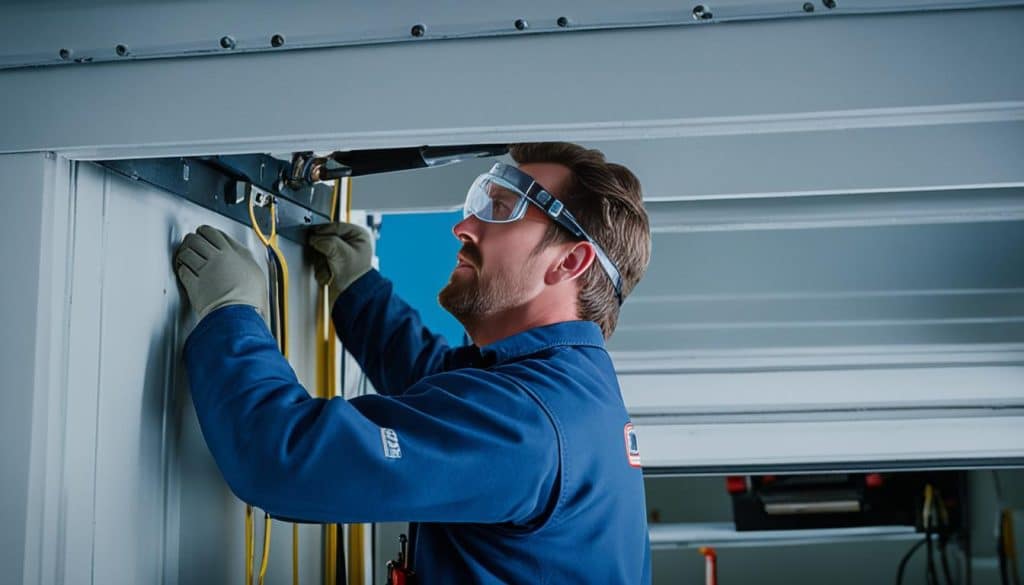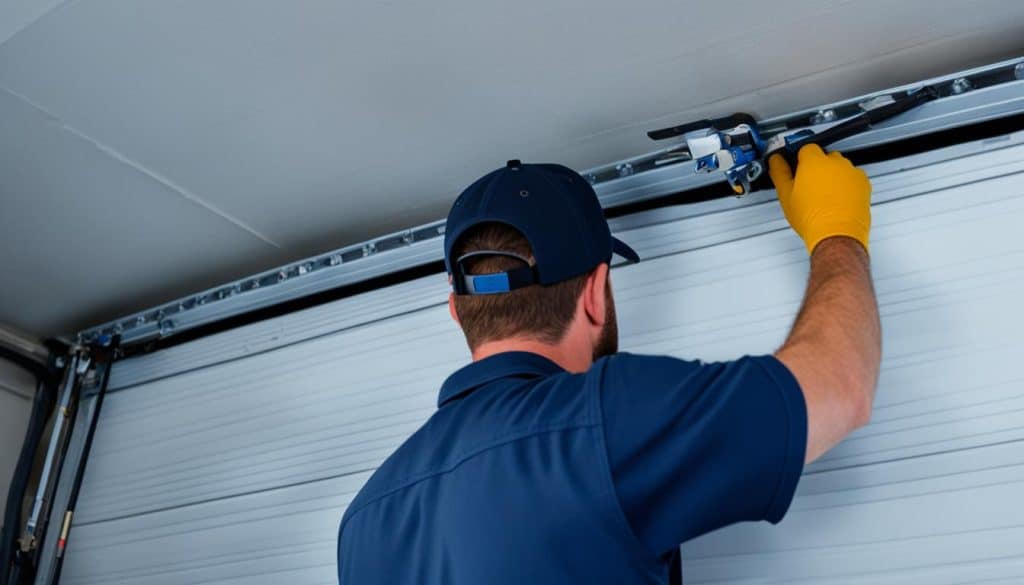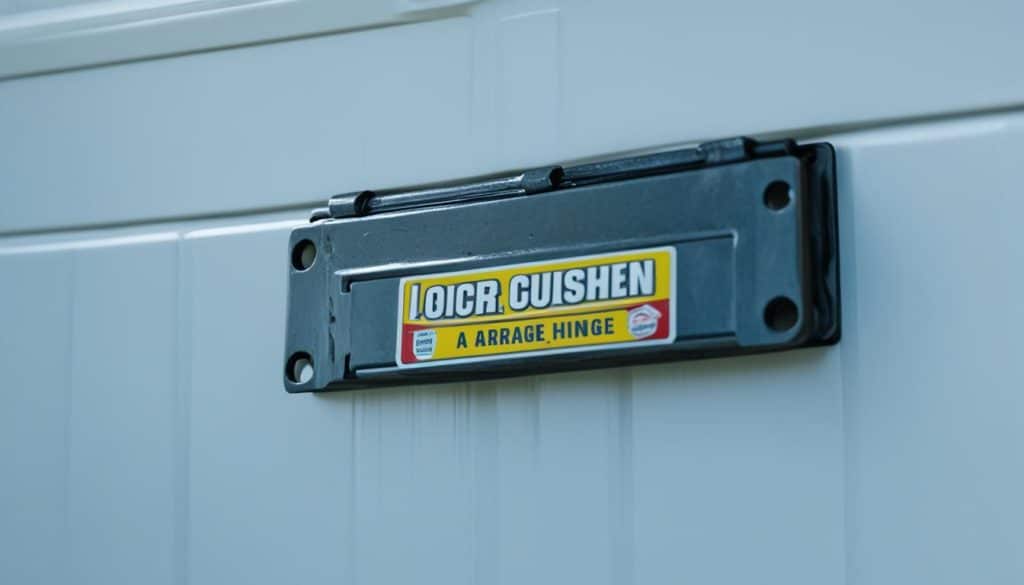Orlando Garage Door Services
1(407) 788-1229
Volusia Garage Door Services
1(386) 236-9100
1(407) 788-1229
1(386) 236-9100
Is the racket from your garage door driving you nuts? Does it wake up the whole house every time you come home? Don’t worry—Emerald Garage Door Services can help, and soon you’ll enjoy a quiet evening again.
Most garage door clatter comes from loose screws, dry parts, or a clunky opener. Tightening, lubricating, and, in some cases, upgrading the gear can tighten and hush your door almost instantly. Instead of a roar, you’ll get a smooth, barely audible whoosh.
This article will walk you through both quick DIY fixes and some smart upgrades. From simple grease jobs to swapping to a quiet belt opener, you’ll find the right quiet-down strategy. Before you know it, you’ll be saying, “What noise?” every time the door cycles.
Ready to take your peace back? Grab a can of lubricant, tighten a few bolts, and let’s get started. Your neighbors—and your ears—will thank you!

A noisy garage door is often caused by loose nuts, bolts, and screws. They can wobble over time and create annoying sounds. The good news is that a quick tighten can bring back the peace.
Grab a wrench or a socket set. Check the hinges, brackets, and roller brackets, paying extra attention to any bolt that looks loose. Tighten it gently—don’t overdo it, or you could create new problems.
While you tighten, keep an eye on the door’s movement. If it starts to stick, or if rollers jump the track, call a garage door technician. They know how to fix the trouble safely and get everything back on track.
Regularly tightening nuts and bolts cuts down the noise and helps the door work smoothly. Make it part of your seasonal chores, and you’ll have a garage that’s quiet and reliable.
A loud garage door usually means some parts are dry or worn. The answer? Regular lubrication. Focus on the lubricate the rollers, hinges, lift cables, and springs. For the best results, grab a synthetic garage door lubricant. Just skip the nylon or plastic parts, since grease can harm those.
Make a habit of lubrication every two months. This small step keeps the door quiet and the parts running smoothly.
Consistent maintenance is the secret. When the parts are lubed up, the door glides instead of grinding. A quiet door means a happy garage and fewer surprise wake-ups for the family.
If you want to cut the noise even more, consider a garage door silencer. This easy-to-install gadget dampens vibrations and stops noise in its tracks. By creating a cushion between the opener and the ceiling, the silencer keeps most vibrations from traveling to the floor beams.
Installation is straightforward and the silencer fits most garage door openers. A quick afternoon install can significantly reduce the sound of the door moving up and down.
If measuring and adjusting aren’t your strong suits, or you just want it done right the first time, call in a solid garage door repair service. These pros have the gear and know-how to install the door silencer exactly right, making sure it runs quieter and smoother.

Installing a garage door silencer has many advantages:
Adding a garage door silencer is a smart choice. It works well with other fixes like oiling parts and tightening bolts.
Next, learn about another way to quiet your garage door. See how a quieter belt drive opener can help.
Is your garage door opener too noisy? Then it’s time for a quiet upgrade, and Emerald Garage Door Services is ready to help. Switching to a belt drive opener lets you enjoy a door that opens and closes more smoothly and silently, turning your garage into a peaceful retreat.
When you pick a belt drive opener, always go with a trusted brand known for low noise. Take a minute to read customer reviews—they show you which models truly stand out. Many of today’s belt drive openers come with neat extras, like smartphone control, battery backup, and smart security alerts. All these features make everyday life a little easier and more secure.
With Emerald Garage Door Services, your garage quiets down in no time. You’ll love the smoother glide and the hushed sound, turning this often-used space into a relaxing area you enjoy visiting.
A screechy garage door can drive you nuts, but you can easily turn it into a whisper. Fixing a few simple problems makes a big dent in the racket.
Start by tightening any loose screws and adding a few drops of garage-door oil. Parts that rattle and gears that dry up are the usual culprits. Give the door a check-up and oil it now and then, and it will keep quiet.
If that doesn’t cut it, try a garage-door silencer. This little pad soaks up the vibrations that travel through the track, dampening the sound. Another fast upgrade is to swap in a modern opener. The newer models glide along tracks instead of thumping, so you barely hear a thing.
Safety is key, so get a pro to tackle any tricky wiring or springs. Once you do a few, simple fixes, the noisy door will turn into a soft, gentle close. Your garage will soon be the quietest space in the house.

You have a few simple options for quieting a loud garage door. Start by checking for loose screws and bolts—tightening them can help. Then, give all the moving parts a quick spray with a garage door lubricant. Consider adding a garage door silencer pad, and if the noise is still bothersome, you could upgrade to a quieter belt-drive opener.
If parts look loose, give them a gentle turn to snug them up. Avoid overtightening, since that could bend rails or wear out hinges. If the door feels stiff or a part falls off, you may need to call a tech to take a look.
Lubricate the moving parts about once every two months. If you notice the rollers looking dry, do a quick spray sooner. The lubricant keeps parts from rubbing hard against one another, which also quiets them down. Just remember to choose a lubricant labeled for garage doors, and don’t spray the nylon or plastic rollers.
A garage door silencer is a simple device that makes your garage door much quieter. It works by suspending the opener slightly away from the ceiling, which keeps vibration from traveling down through the ceiling and into the garage. Less vibration equals less noise. For the best results, it’s a good idea to have a pro install it—especially if you’re unsure how to dive into the job yourself.
Switching to a belt-drive opener is one of the easiest ways to silence your garage. Belt-drive systems slide the door smoothly on a rubber belt, which is much quieter than the metal parts of older chain or screw models. By upgrading to a belt opener, you significantly lower the daily noise level when you open or close the door.
If you’ve already tightened screws, applied lubricant, added a silencer, and swapped in a belt opener and the noise lingers, it’s definitely time to call in the pros. A garage door technician can diagnose the root of the issue—like worn rollers or misalignment—and perform the necessary repairs to restore the quiet you expect from your door.
Some noise-reduction tasks—like tightening screws, lubricating moving parts, and installing a silencer—are simple do-it-yourself projects. However, complicated repairs, like replacing worn springs or adjusting tracks, are safer in the hands of a trained technician. Going professional can prevent injuries and guarantee that your garage door operates smoothly and safely.